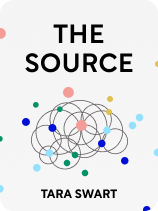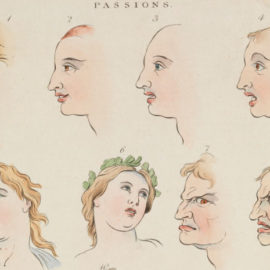

This article is an excerpt from the Shortform book guide to "The Source" by Tara Swart. Shortform has the world's best summaries and analyses of books you should be reading.
Like this article? Sign up for a free trial here.
What’s the science behind manifestation? Does manifestation require you to take action?
Manifestation involves replacing negative thoughts with positive ones, which hopefully leads to good results. The concept of manifesting also involves acting on these thoughts, says The Source by Tara Swart.
Learn more about the science behind manifestation below.
What’s Manifestation?
Manifestation is when your desire and your intentions line up in a way that allows you to attract the things you want in life. Swart emphasizes that this is an action-based concept. It’s not just about thinking happy thoughts and waiting for what you want to magically appear, but rather about focusing on what you want so you can more easily take the actions needed to make it a reality. She writes that the science behind manifestation relies on two neurological processes: selective attention and value tagging.
(Shortform note: In The Secret, Byrne also emphasizes the action aspect of manifestation. She argues that you should specifically engage in inspired action, which is when you allow the universe itself to motivate your behavior. This is opposed to forced action, which is behavior you engage in because you think it will get you a certain result. Forced action feels like labor and can lead you to take on too much because you believe that more work will get better results, but inspired action feels like you’re being guided by the universe and opens you up to receiving what you want.)
Selective attention is when you focus only on important information while filtering out irrelevant or extraneous information. The brain is constantly receiving massive amounts of information, and it can only focus on a small amount at any given moment. If you devote your limited attention to the things you want in life, you’ll soon find yourself noticing those things more and more because you’re priming your brain to watch out for and alert you to them.
| Brain Processing and Selective Attention Bias Research shows that the brain receives around 11 million bits of information from the senses per second, but it can only consciously process about 50. This means that your unconscious mind is filtering out or compressing millions of bits every second to provide your conscious mind with the information it needs to focus on—and it does so in the space of just half a second. When you prime your brain to focus on certain things (for example, the things you want in life), you’re training your brain to focus on those more, which can lead to a selective attention bias (also known as frequency bias or the Baader-Meinhof phenomenon). While we usually think of biases as something to avoid, this bias can benefit you by keeping you focused on what you’re trying to manifest. |
The second neurological process of manifesting is value tagging. This refers to ascribing emotional value to the information you take in. As explained above, emotion heavily influences our thinking and motivates our actions and decisions, so associating a strong, positive emotional value with things that help you progress toward your goal will gear your behavior toward achieving more of those things.
For example, if you enjoyed going on walks with your family as a child, you’ll probably have a positive emotional value assigned to walking or outdoor areas that resembled where you used to walk. If your goal is to spend more time outside or get more exercise, this positive value can help you progress toward that goal. Alternatively, if outdoor walks were a stressful event for you, you may have an aversion to them—so it may be easier to focus on other activities that have more positive associations for you.
(Shortform note: Swart doesn’t specify how you can control the value that you assign to information. Research suggests that emotional tagging (which seems to share a definition or overlap with value tagging) takes place on a subconscious level and mostly impacts the way you remember things. That said, although you can’t always control the type of emotional values your brain assigns to important information, simply being aware of them could help you pay better attention to information that’s relevant to your goal.)

———End of Preview———
Like what you just read? Read the rest of the world's best book summary and analysis of Tara Swart's "The Source" at Shortform.
Here's what you'll find in our full The Source summary:
- How to get the most out of your brain by tapping into its immense power
- How to use the major principles of the Law of Attraction
- The four-step process to change your life






